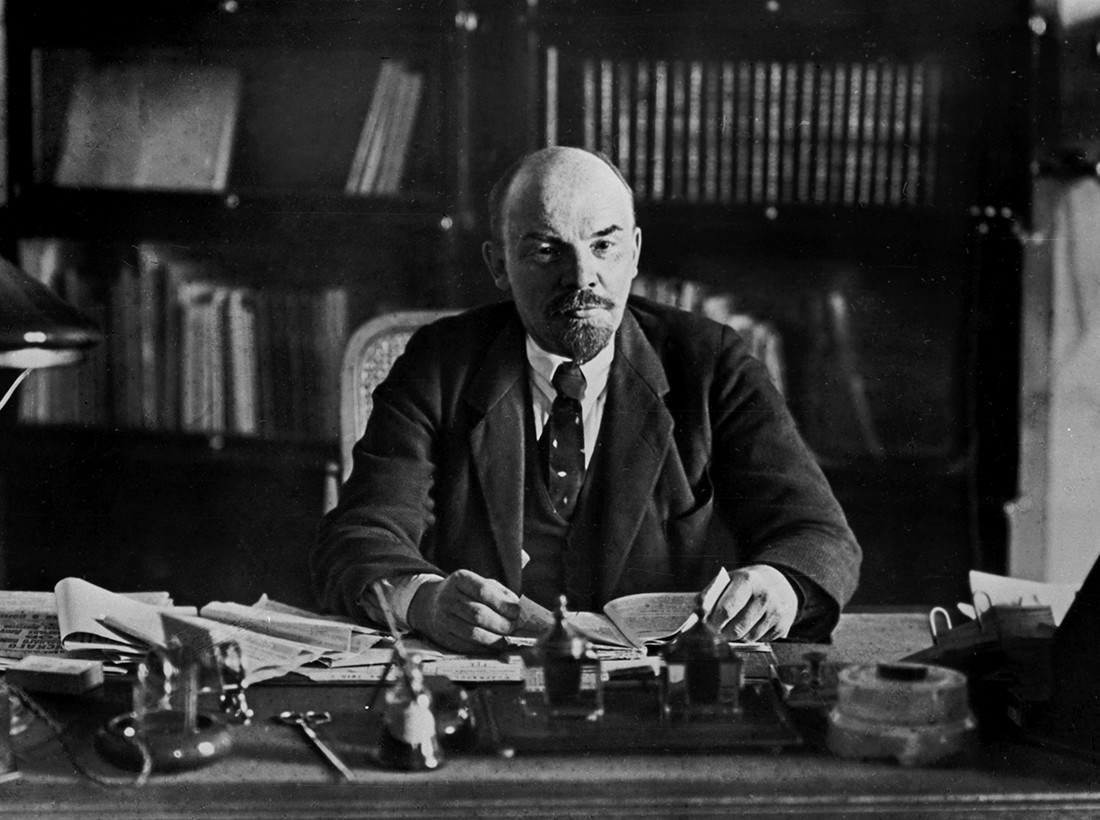ProleWiki:Main page/Featured/Marxism: Difference between revisions
mNo edit summary |
m (New Featured for Lenin) Tag: Visual edit |
||
| Line 1: | Line 1: | ||
[[File: | [[File:Lenin photograph 2.png|left|frameless|275x275px]] | ||
''' | '''Vladimir Ilyich Ulyanov''' (22 April 1870 — 21 January 1924), also known as '''Vladimir Lenin''', was a [[Russian Empire (1721–1917)|Russian]] revolutionary leader, [[Political economy|political and economic]] theorist, philosopher and statesman. He was the main leader of the [[Russian revolution of 1917|October Revolution]], which led to the establishment of the [[Union of Soviet Socialist Republics (1922–1991)|Union of Soviet Socialist Republics]], the first [[Dictatorship of the proletariat|workers and peasants state]]. | ||
Lenin's main contribution to [[Marxism|Marxist]] theory was his theory of [[imperialism]], the domination of monopolies and cartels. In many of his works, he also contributed greatly to the development of a Marxist [[praxis]], the strategy and tactics of the [[revolution]], the Marxist theory of [[state]], and the structuring of a proletarian organization through [[democratic centralism]]. | |||
{{Align|right|[[ | Lenin's political and theoretical activity, his writings of the 1890s and the beginning of the 20th century, his resolute struggle against [[opportunism]] and [[Revisionism|revisionist]] attempts to distort Marxist theory, his struggle for the creation of a revolutionary [[political party]] is considered the Leninist contribution to Marxism, now commonly referred to as [[Marxism–Leninism|Marxism-Leninism]].{{Align|right|[[Vladimir Lenin|''Read further...'']]}} | ||
Revision as of 18:20, 22 April 2022

Vladimir Ilyich Ulyanov (22 April 1870 — 21 January 1924), also known as Vladimir Lenin, was a Russian revolutionary leader, political and economic theorist, philosopher and statesman. He was the main leader of the October Revolution, which led to the establishment of the Union of Soviet Socialist Republics, the first workers and peasants state.
Lenin's main contribution to Marxist theory was his theory of imperialism, the domination of monopolies and cartels. In many of his works, he also contributed greatly to the development of a Marxist praxis, the strategy and tactics of the revolution, the Marxist theory of state, and the structuring of a proletarian organization through democratic centralism.
Lenin's political and theoretical activity, his writings of the 1890s and the beginning of the 20th century, his resolute struggle against opportunism and revisionist attempts to distort Marxist theory, his struggle for the creation of a revolutionary political party is considered the Leninist contribution to Marxism, now commonly referred to as Marxism-Leninism.